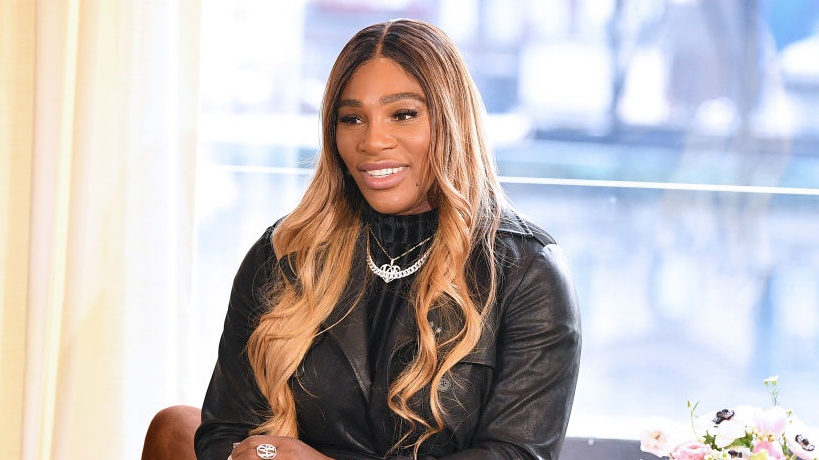Serena Williams is revving up her training ahead of the August 31 start date for the U.S. Open in New York, but she took some time out to appear on the Chase Chats Webcast for an in-depth discussion with host and former NBA player Jay Williams.
The two shared tips and tricks for how to get in the habit of saving money at the beginning of a career, how to stay motivated and on course with your financial goals and how to manage uncertainty.
In an email interview with Blavity, Serena spoke about the life lessons her father, Richard Williams, taught her concerning money and the financial mindfulness she hopes to pass on to her daughter, Olympia.
Serena is already well on her way to ensuring Olympia's financial success. Last month, she and her husband, Reddit co-founder Alexis Ohanian, announced they were buying the 2-year-old a stake in the Los Angeles franchise of the National Women’s Soccer League, as Blavity previously reported.
Here is what the tennis legend had to say about managing finances during rough times.
Blavity: At what age did you start to learn how to better manage your money?
Serena: It started early – I remember at a young age, I would go to local parks and play tennis with my dad and he’d say, "Athletes always lose their money." He made it very clear that no matter what sport I played, there was a risk of losing what you earned. So, the concept of saving money and not making purchases simply because I could was drilled into me early. It has stuck with me my entire career. It became imperative to understand that, when I earned, I needed to also know how to spend, invest, or save it.
Blavity: What were some of the first steps you took at that time?
Serena: When I got my first bit of real prize money, I knew right away I needed to put it in the bank. One thing I wish I’d had a better understanding of back then was how finances truly work. For example, what happens if you put it in a savings account, invest it, or just deposit it? I didn’t learn that until way later in my career, but had I known a little more in my teenage years and early 20s, I could have made my money work for me in different ways sooner rather than later.
Blavity: How has your mindset around money changed over the years? What is your current money mindset?
Serena: What my dad mentioned about athletes going broke stuck with me, and I was determined not to become a statistic. My dad wasn’t wealthy, but he knew that when you work hard, you reap the benefits and that it’s important to spend those rewards in the right way. Being careful with how I spend money is still crucial for me and something I feel is important to teach as a parent.
Blavity: What's the single best thing you believe you've done to help you save and build money?
Serena: Something I wish to instill in my daughter as a parent is that if you want something, you must remain disciplined and save toward that goal. Being cautious and in-tune with how you spend is something I work to live by each day so that I can be a model for my daughter. I always keep track of payments and balances on things like credit cards because being mindful of borrowing money is particularly important.
Blavity: How do you think Black people, in particular, can manage the financial uncertainty of the current time we're in?
Serena: I think first and foremost it’s important to know your worth, so you know what you deserve. That not only applies to money but life in general. As it relates to money, it can be easier to be taken advantage of or overlook opportunities if you’re unsure of your own value. So, I believe taking time to consider your skills and what those are truly worth is crucial — especially right now.
Blavity: What are some financial tips you've learned over the years that were particularly helpful?
Serena: Harking back to what I learned at a young age, being conscious of how I spend my money is a timeless lesson. Saving for something I want rather than just spending my money right away is something I’ve carried with me through each phase of my career. It certainly helps to realize my earnings are a result of hard work, and when you think of money as a reward for that work, you become more mindful of what you do with it.
For Williams' full interview with Chase, click here.

